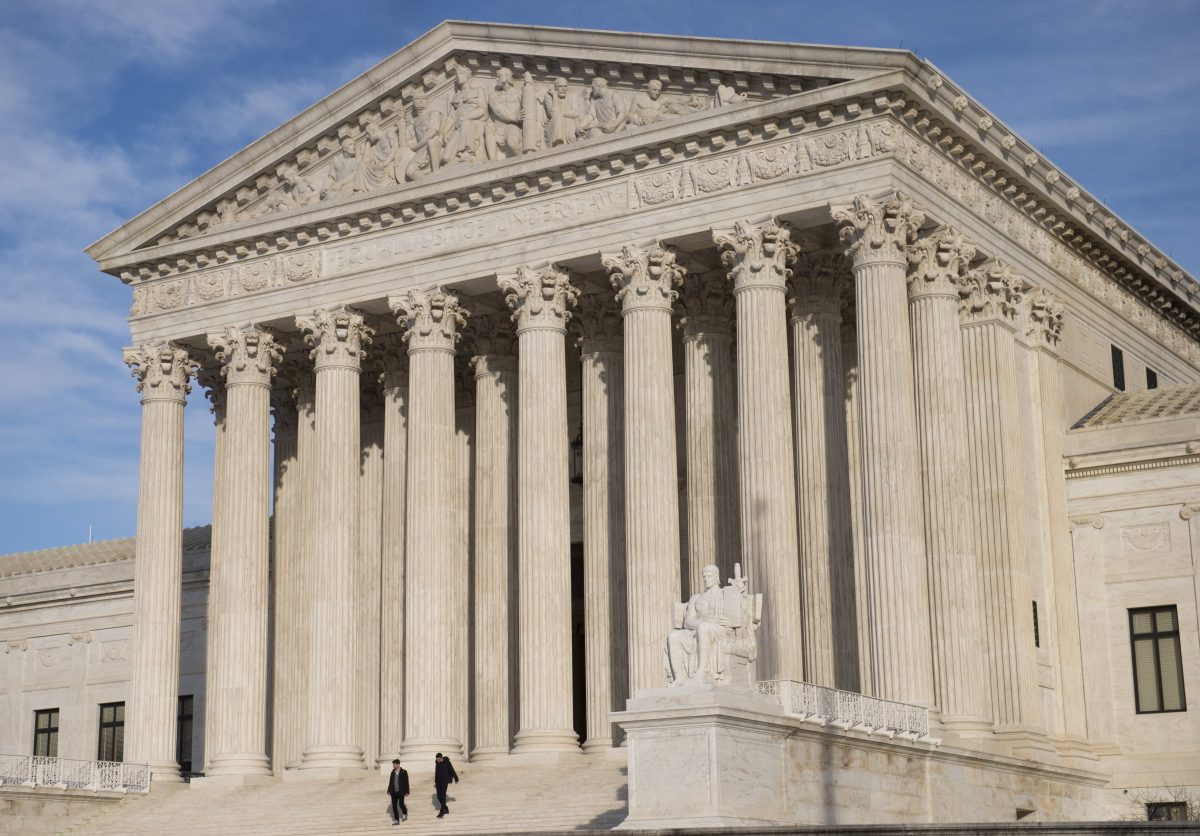
The U.S. Supreme Court heard oral arguments on Wednesday in the case of Trump v. Hawaii, which focuses on President Donald Trump‘s most recent version of a travel ban on people from certain specified countries. The ban, which allows case-by-case waivers, targets certain countries that have not complied with American requests for information, including the Muslim-majority countries of Iran, Libya, Somalia, Syria and Yemen. The Justices, looking to get to the heart of the issues surrounding the ban, posed extreme hypothetical scenarios to both sides.
Listen to the arguments here:
First, Justice Elena Kagan addressed the religious concern. Opponents of the travel ban say that it unjustly targets Muslims, citing President Trump’s comments during his campaign where he endorsed the idea of banning Muslims from the United States until security issues could be figured out. Kagan asked Solicitor General Noel Francisco what he would think if a president campaigned using anti-Semitic rhetoric and then banned Israelis from the country once in office.
Francisco admitted that this was a tough hypothetical that might not meet a rational basis standard of review, but Trump’s travel ban, which only targets certain Muslim-majority countries, is different.
When it was Neal Katyal‘s turn to argue on behalf of Hawaii, it was Chief Justice John Roberts‘ turn to use hypotheticals of his own. If U.S. intelligence told the president that Syria was planning on bringing chemical weapons into the country, would Trump be allowed to ban travelers from Syria that day, that week, or longer? Katyal admitted that, yes, the president could do this because that would be an emergency situation, but said that Trump’s executive order is “so far from that hypothetical.”
Roberts also challenged the idea that the travel ban violates the First Amendment’s Establishment Clause by asking if a military strike on Syria would be considered anti-Muslim. Katyal said it would not, but that’s different because there is no national security emergency that the travel ban addresses.
Justice Anthony Kennedy, often a swing vote in controversial cases, challenged both sides. When the Solicitor General argued that Trump’s campaign comments should be ignored, Kennedy presented a hypothetical of his own: if a mayoral candidate made hateful remarks during a campaign, and then took action once in office that was consistent with those remarks, wouldn’t those remarks be relevant in evaluating the action? Francisco pointed out that in the current situation, candidate Trump may have discussed a Muslim ban, but President Trump’s order is not a Muslim ban.
On the flip side, Kennedy pointed out to Katyal that Trump, as president, has broad authority to exclude aliens from the country, and said that the administration’s policy called for reassessing the situation every 180 days. Katyal argued later on that while the president does have power to bar certain aliens, prohibiting a class of immigrants would go against Congress’s authority “to establish a Uniform Rule of Naturalization.”
This is the third iteration of Trump’s travel ban. Previous versions had been contested as going too far in targeting Muslims. Since then, certain countries have been removed, while North Korea and officials from Venezuela have been added. The challenge before the Court does not address the ban as it pertains to North Korea and Venezuela.
A full transcript of the arguments can be found below.
Trump v Hawaii Transcript on Scribd
[Image via SAUL LOEB/AFP/Getty Images]